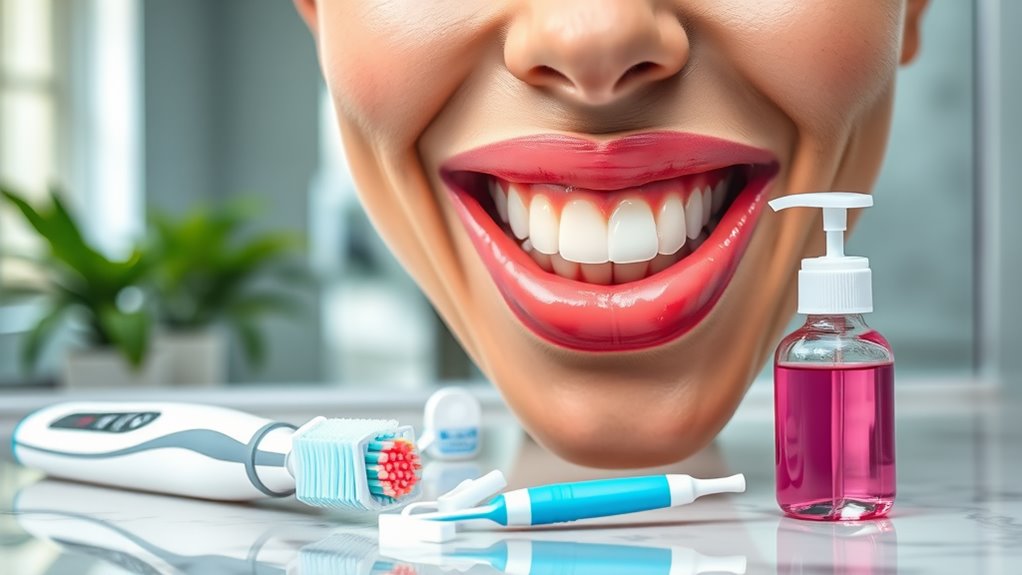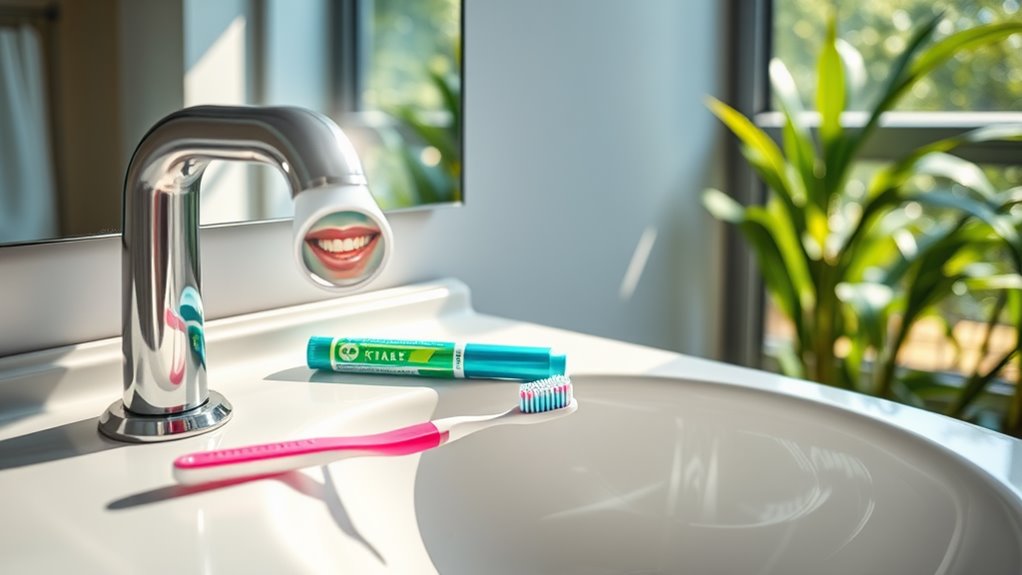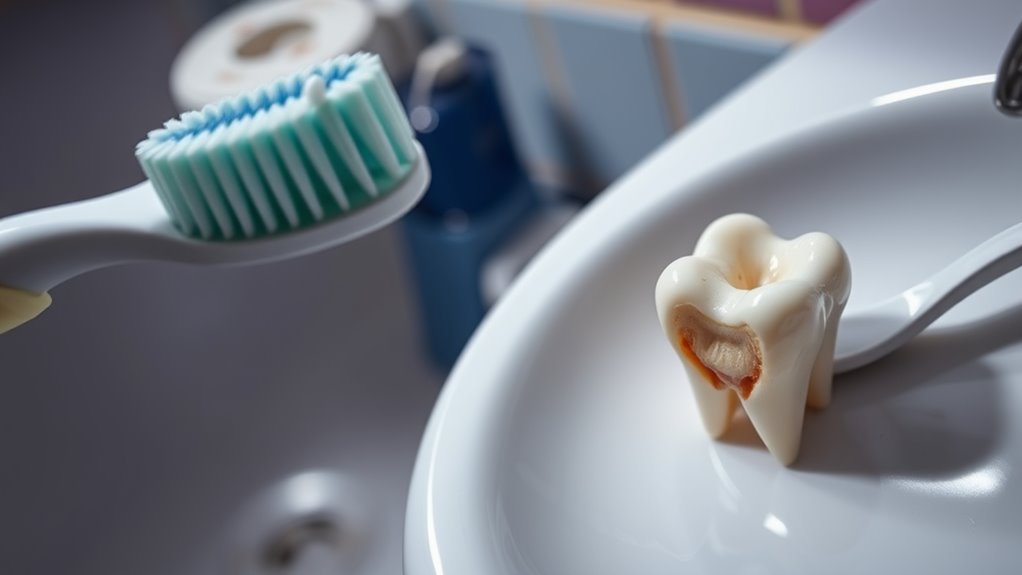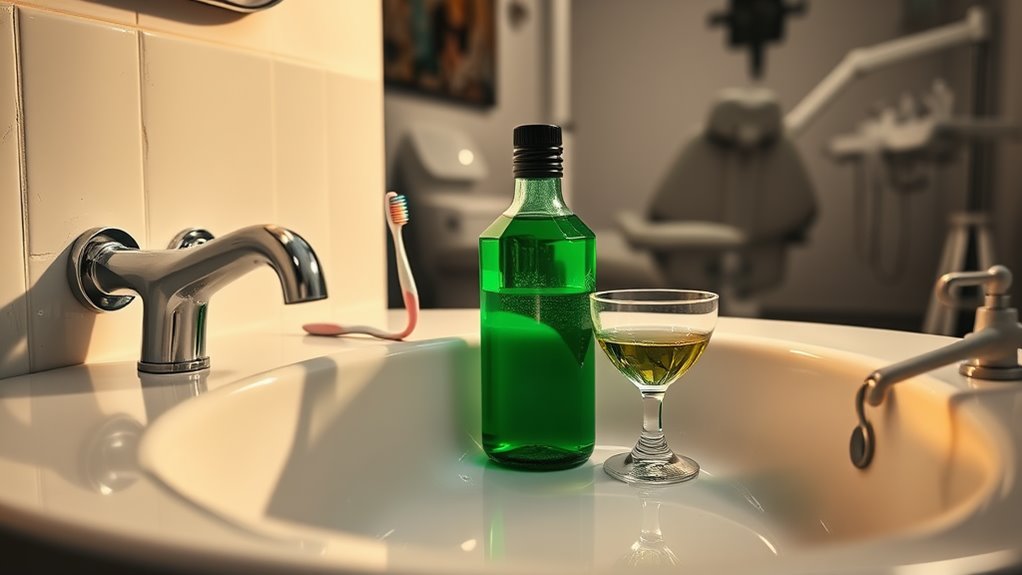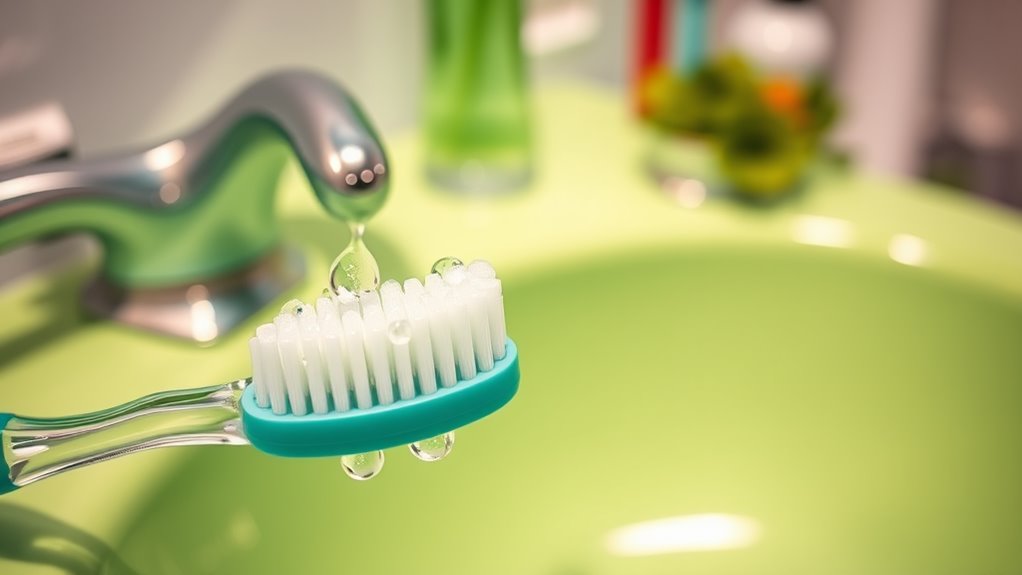10 Oral Hygiene Mistakes You’re Probably Making (and How to Fix Them!)
You might be making several oral hygiene mistakes that could harm your dental health. Skipping daily flossing and using a hard-bristled toothbrush can lead to gum damage and plaque buildup. If you rush through your routine or brush for too little time, you’re not giving your mouth the care it needs. Neglecting your tongue and ignoring regular dental check-ups can worsen bad breath and health issues. Stick around to discover how to fix these common pitfalls!
Skipping Daily Flossing
Although it might seem like a minor oversight, skipping daily flossing can lead to significant dental issues. You might think brushing alone is enough, but neglecting to floss creates gaps for plaque and food particles. This can result in cavities and gum disease. To disrupt bacterial colonies, commit to flossing daily—it’s a simple yet crucial step to avoid common oral hygiene mistakes.
Using the Wrong Toothbrush
Using the wrong toothbrush can significantly impact your oral health. A brush with hard bristles can damage your gums, while a brush that’s too large may not reach all areas effectively.
Choose a soft-bristled toothbrush that fits comfortably in your mouth. Don’t forget to replace it every three to four months, or sooner if the bristles fray. Incorporating calcium-rich foods into your diet can further support your teeth’s strength and resilience.
Your teeth deserve the best care!
Brushing for Too Short a Time
Many people underestimate the importance of brushing their teeth for a sufficient amount of time.
Ideally, you should brush for two minutes, ensuring every surface gets attention. Short brushing can leave plaque and bacteria behind, increasing your risk of cavities and gum disease. Good oral hygiene reduces the risk of systemic diseases, such as heart disease, highlighting the significance of thorough brushing.
Use a timer or play a song to help you stay on track and protect your oral health effectively.
Rushing Through Your Routine
When you rush through your oral hygiene routine, you’re not just shaving off precious minutes; you’re potentially compromising your dental health. Take a moment to prioritize your well-being by dedicating enough time to thoroughly clean your teeth and gums. Here’s what may be at stake:
| Consequences | Remedies |
|---|---|
| Cavities | Spend at least two minutes brushing |
| Gum disease | Use proper technique |
| Bad breath | Floss daily |
A consistent dental routine is essential for maintaining a healthy mouth and avoiding systemic health issues.
Neglecting Your Tongue
It’s easy to forget that the tongue plays a crucial role in oral hygiene. By neglecting to clean it, you allow bacteria and food particles to build up, potentially leading to bad breath and other issues. A white or yellowish coating on your tongue can indicate a buildup of bacterial, debris, and dead cells, which contributes to persistent halitosis. Use a tongue scraper or your toothbrush to gently clean your tongue every time you brush. This simple step can significantly improve your overall oral health.
Overusing Mouthwash
How often do you reach for mouthwash after brushing?
While it can freshen your breath, overusing mouthwash can disrupt your oral health.
Here are three reasons to use it sparingly:
-
Alcohol content can dry out your mouth, leading to more bacteria.
-
Fluoride reduction might occur with excessive use.
-
Taste masking can prevent you from noticing other oral issues.
Additionally, excessive mouthwash use can disrupt the oral microbiome, allowing harmful bacteria to flourish.
Balance is key!
Ignoring Dental Check-Ups
Although it may seem easy to skip dental check-ups, neglecting these appointments can lead to significant oral health issues.
Regular visits allow your dentist to catch problems early, preventing costly treatments down the line. Plus, professional cleanings help remove plaque and tartar buildup you might miss at home. Proactive dental care is essential for overall well-being, so make your oral health a priority—schedule your next check-up today to maintain a healthy smile.
Eating and Drinking After Brushing
While brushing your teeth is a crucial step in maintaining oral hygiene, eating or drinking too soon afterward can undermine your efforts.
To optimize your dental care, remember to:
- Wait at least 30 minutes after brushing before consuming food or beverages.
- Avoid acidic drinks that can weaken enamel.
- Choose water instead to rinse your mouth, keeping your smile healthy longer.
Choosing the Wrong Toothpaste
After taking the time to brush your teeth and wait before eating or drinking, it’s important to ensure you’re using the right toothpaste.
Selecting a toothpaste with fluoride helps prevent cavities, while options for sensitivity can ease discomfort.
If you’ve got specific needs, like whitening or tartar control, choose accordingly.
Always check for ADA approval to ensure you’re making a smart choice.
Not Replacing Your Toothbrush Often Enough
Your toothbrush is an essential tool for maintaining oral health, but many people forget that it’s not meant to last forever.
Replace your toothbrush every 3-4 months or sooner if:
- The bristles fray or change direction.
- You’ve been sick and want to avoid reinfection.
- It’s been a while since you last replaced it.
Your smile deserves the best care!
